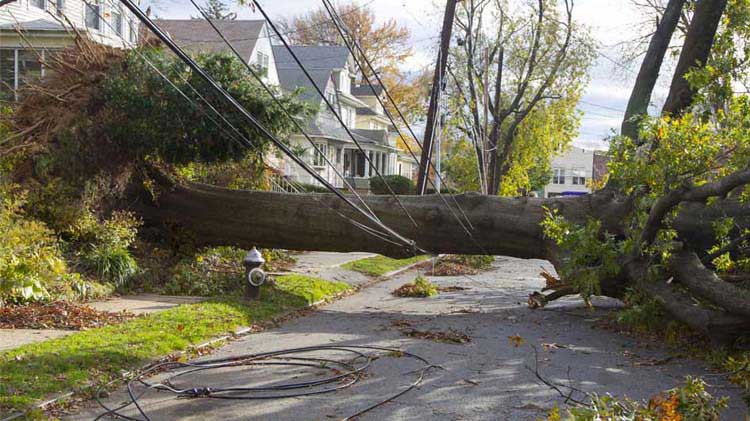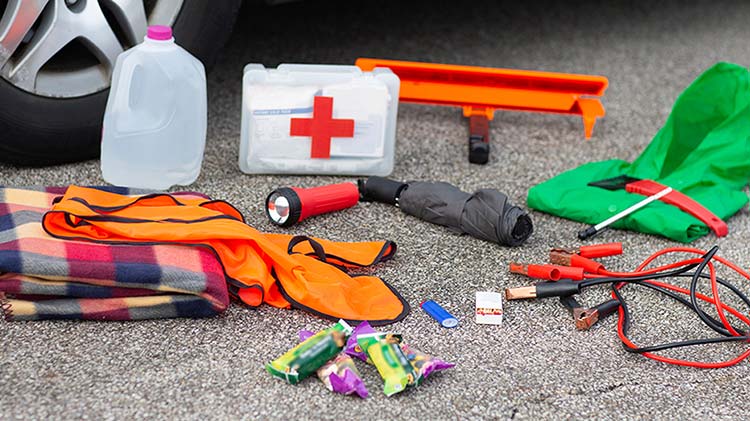Power outage preparedness tips
When severe weather looms, see that your home or small business is prepared for a power failure.
According to the U.S. Census Bureau, a survey done in 2023 showed that one in four homes in the U.S. experienced at least one power outage in the previous year. Power outages can be disruptive and usually are out of a person’s control. Here are some power outage preparation tips to help you be ready in case it happens to you.
How to prepare for a power outage
- Power outages can happen at any time and are unavoidable, but the costs and inconvenience associated with them can be lessened by installing a backup generator at a home or business.
- Have a small power outage emergency kit on hand. Consider including water, snacks, medications, first aid kit and books. If the outage is expected to last longer than a day, you might need to have a larger kit that includes water and food for several days, plus extra blankets and warm clothes.
- Keep flashlights, a battery-powered radio and extra batteries in a designated area so they can be easily found.
- If you know the outage is coming, set aside extra water and buy or make extra ice. You can use the ice to keep perishable items cool.
- Install fresh batteries in your smoke detector. Test the smoke detector on a monthly basis to confirm it's working.
- Keep an appliance thermometer in the freezer. If the freezer is 40 degrees Fahrenheit or colder when the power returns, the food may be considered safe.
- Keep a fully charged cell phone on hand. If you have a portable charger, see that it's charged and ready.
- If you or a member of your family uses power-sourced medical devices or needs refrigerated medications, have an alternate plan for that.
- Reach out to your local authorities to see if there are any locations in your area where there is A/C or heat during power interruption events.
What to do when the power goes out
- If possible, use flashlights or battery-operated candles instead of conventional candles for emergency lighting. Candles used in unfamiliar settings can be dangerous fire hazards.
- Do not use your gas stove or oven to heat your house.
- Turn off, unplug or disconnect any appliances, equipment or electronics that were on when the power went out. When power comes back on, it may come back with momentary "surges" or "spikes" that can damage equipment such as computers, and motors in appliances like the air conditioner, refrigerator, washer or furnace.
- Leave one light on so you know when the power returns.
- Avoid opening the refrigerator and freezer to help keep the food cool. Before eating food items, check them for spoilage.
- Use generators safely. If you have a portable generator, only run it outdoors with proper ventilation and at least 20 feet away from doors and windows. Never use a generator indoors or in attached garages. The exhaust fumes contain carbon monoxide, which can be deadly if inhaled.
- Listen to a battery powered radio for updates.
- Know how to get information about power outages. If you have access to the internet, look up the electrical outage information for your area.
- Avoid traveling unless necessary, as roads may be congested and traffic lights might be out.
What to do after a power outage
- Dispose of refrigerated food that's been exposed to temperatures 40 degrees Fahrenheit or higher for more than two hours. Also dispose of food that has a weird smell, texture or color. Even if food smells and tastes fine, it may have bacteria because of being at room temperature for a long time — and it may make you or your family sick.
- If food in a freezer has a temperature colder than 40 degrees Fahrenheit and may have ice crystals, it is ok to keep it.
- Discard any medication that's refrigerated if the power is out for more than a day, except in the case where the label says different. If a life depends on the refrigerated medication, consult a doctor or pharmacist to see if the medicine can be used until a new supply is available.
- After power has been reestablished, turn appliances back on one at a time.
Food spoilage or appliance damage
If a power outage caused by a covered event occurs, your homeowners or small business policy may provide food spoilage coverage. Your policy may have a monetary limit available and there may be a deductible. A covered event might include a tornado, hurricane, fire or lightning, to name a few. And policies might not provide coverage if the power is just turned off — by you or the utility company.
Your appliances may or may not be covered depending on the policy. Endorsements are available to extend coverage to appliances that are damaged due to electrical failure.
If you do have a loss of food or appliance damage, check your home insurance policy or small business policy to see if the loss may be covered. If you decide to file a claim, your policy will be reviewed and your insurance company will advise whether or not your loss is covered. If there are questions, please contact your agent.





